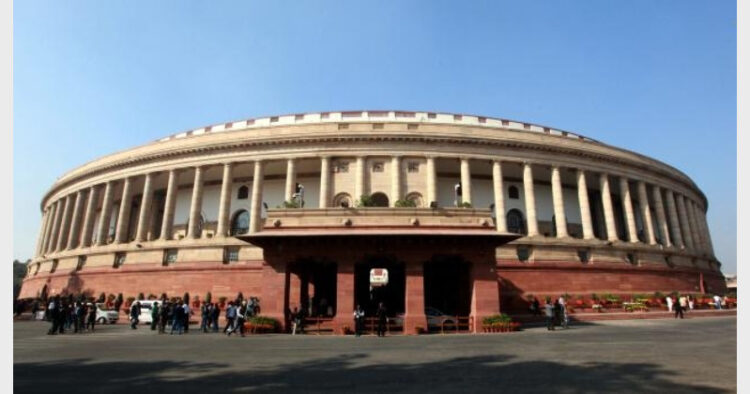SC Push for Probity in Polity
Prafulla Ketkar
In a historic decision on termination of membership from legislature immediately on being convicted, the SC has dealt a major blow to the ascending trend of ‘criminlisation of politics’. A Bench of Justices comprising of A.K. Patnaik and S.J. Mukhopadhaya ruled that Section 8 (4) of the Representation of the People Act that allows convicted lawmakers a three-month period for filing appeal to the higher court and to get a stay on the conviction and sentence, unconstitutional. Though the ruling will be prospective and members of legislatures who had already filed appeals in various High Courts or the Supreme Court against their convictions would be exempt from it, the ruling has sent a strong signal in favour of probity in polity.
In response to the two writ petitions filed by advocate Lily Thomas and Lok Prahari, through its General Secretary S. N. Shukla, the Bench has not only taken away the immunity available to the peoples’ representatives but also removed the discriminatory provisions of the Act. With reference to the two provisions in Articles 102(1) (e) and 191(1) (e) of the Constitution, the bench clarified that the provision of Section 8 (4) of the Representation of the People Act, continuing as a member of Parliament or the State Legislature even after conviction is contradictory to disqualification of a convicted person from contesting election. With this landmark judgment, many representatives with criminal background will be automatically disqualified once they are convicted in the lower court. In continuation of the judgment, the bench also barred criminals from contesting elections from jail, after lawful conviction. The convict’s entry will be restricted for six years after his release. Under the Representation of the People Act, a convict who is in jail is not an ‘electorate’, therefore he is also disqualified from contesting election, is the logic given in the ruling.
This judgment, in many ways, is significant in restoring the faith of common masses in the democratic process. It has nullified the logic of ‘we are there because people elect us’, In the name of supremacy of the Parliament, democratic system is manipulated. As per the estimate by some NGOs, more than 40 percent members of legislatures are with criminal background. Gone are the days when criminals were the puppets of politicians. Now criminals are acquiring key decision-making positions by fighting the elections. As part of election strategy, they help common people in social, financial and legal matters. As people do not have many options, they either prefer not to vote or are compelled to vote for the person who gets their work done.
The criminals have been manipulating both the political and the legal system. Top politician lawyers like Kapil Sibal and Ram Jethmalani are defending criminals as part of their professional commitment. Most often police or public prosecutors are bribed. This is not the first time where the Supreme Court or the Election Commission has attempted to break the nexus between political parties and muscle-money power. The disclosure of candidates’ assets and their involvement in criminal cases was made mandatory in an earlier attempt. Beyond that no major provisions could be made as twenty-one major regional and national political parties teamed up to annul those steps. Even to the recent judgment, the response of all political parties, barring BJP, is cautious.
It suggests that Indian democracy has to travel a long way to bring probity in governance. The conviction rate in the lower courts has to improve. Laws are never bad; their effectiveness lies in the will to implement them. The crime-politics nexus is a big threat to our economy and security. The onus is on the political parties and the parliament because the bogie of judicial activism will again be derailed by vested interests. Unless public opinion is garnered to pressurize the government for this cleansing act, mere Supreme Court interventions will not suffice.














Comments